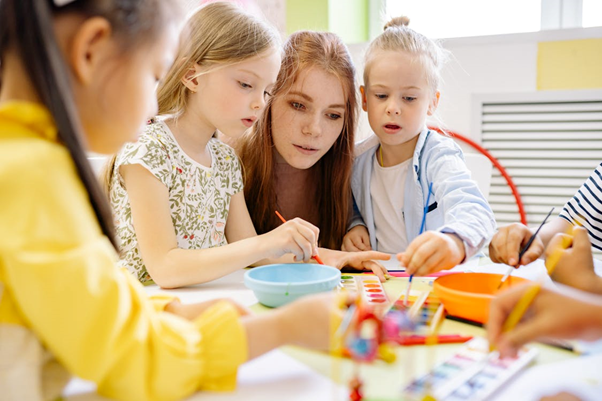What are some readiness activities for preschool kids?
Preschool readiness, also known as kindergarten readiness, describes a child’s ability to successfully integrate and transition into the preschool environment, including its routines and expectations, whether the preschool is an Early Learning Center (ELC), kindergarten, preschool, or kinder. When these skill expectations are met, learning becomes easier for both teachers and students. These standards cover social, verbal, play, physical, and self-care abilities. Parents can play a significant role in fostering preschool preparation with a small amount of proactive planning.

Here are Some Readiness Activities for Preschool Kids
Preschool is where a lot of kids start their path towards being ready for kindergarten. Activities for preschool readiness can serve as a springboard for more regimented kindergarten activities. Though less formal, they are nonetheless quite important. The following ten preschool preparedness exercises can help kids get ready for the move to a structured learning environment:
- Executive Functioning: Higher level thinking and reasoning abilities (e.g., figuring out how to construct the desired edifice, gathering the supplies, and overcoming obstacles in the process) are examples of executive functioning.
- Emotional growth and control: the capacity to recognize emotion, integrate emotion to support reasoning, comprehend emotion, and control emotion. It also entails reacting to frustration in an age-appropriate manner, controlling tantrums, and getting over upsets fast.
- Social skills are defined as the capacity to connect with people in a reciprocal manner (verbally or nonverbally), to reach agreements with others, and to identify and adhere to social standards.
- Crafts Using Fine Motor Skills: Playdough, finger painting, and bead stringing are a few activities that can assist kids in developing the muscular control necessary for writing and handling small items.
- Print Awareness: Print awareness is the ability of a youngster to handle a book, turn pages the proper manner, observe print and comprehend that print has a purpose and that the print on the page represents the words.
- Counting: Playing basic games of counting things or using enjoyable activities to recognize numbers is a good way to introduce children to numerical literacy. They gradually begin to grasp the idea of quantity, which opens the door to learning about increasingly difficult mathematical ideas like addition and subtraction.
- Interactive Circle Time: Sing, rhyme, and dance with the kids that include following instructions, such as “Head, Shoulders, Knees, and Toes.” This improves one’s capacity for both following directions and physical coordination.
- Simple Puzzles: Begin with large-piece puzzles and work your way up to increasingly intricate ones. Solving puzzles improves hand-eye coordination, spatial awareness, and problem-solving skills.
- Pass the Message: Essential abilities that are frequently disregarded in early education include effective communication and active listening. Playing games like “Pass the message,” in which kids whisper a phrase to the person next to them and watch how it changes at the end, can be an entertaining method to emphasize the need of clear communication and careful listening.
Preschool teachers can enhance and further improve a child’s abilities in social interaction, play, language, emotional development, physical skills, early literacy and numeracy, and fine motor skills by focusing on the development of the building block skills for preschool readiness. The kid usually has a more successful transition into the preschool setting if these fundamental abilities are established before they enroll in the program.
Also Read: Next-Level Fun- Treat your kid to a science and robotics birthday party today!


